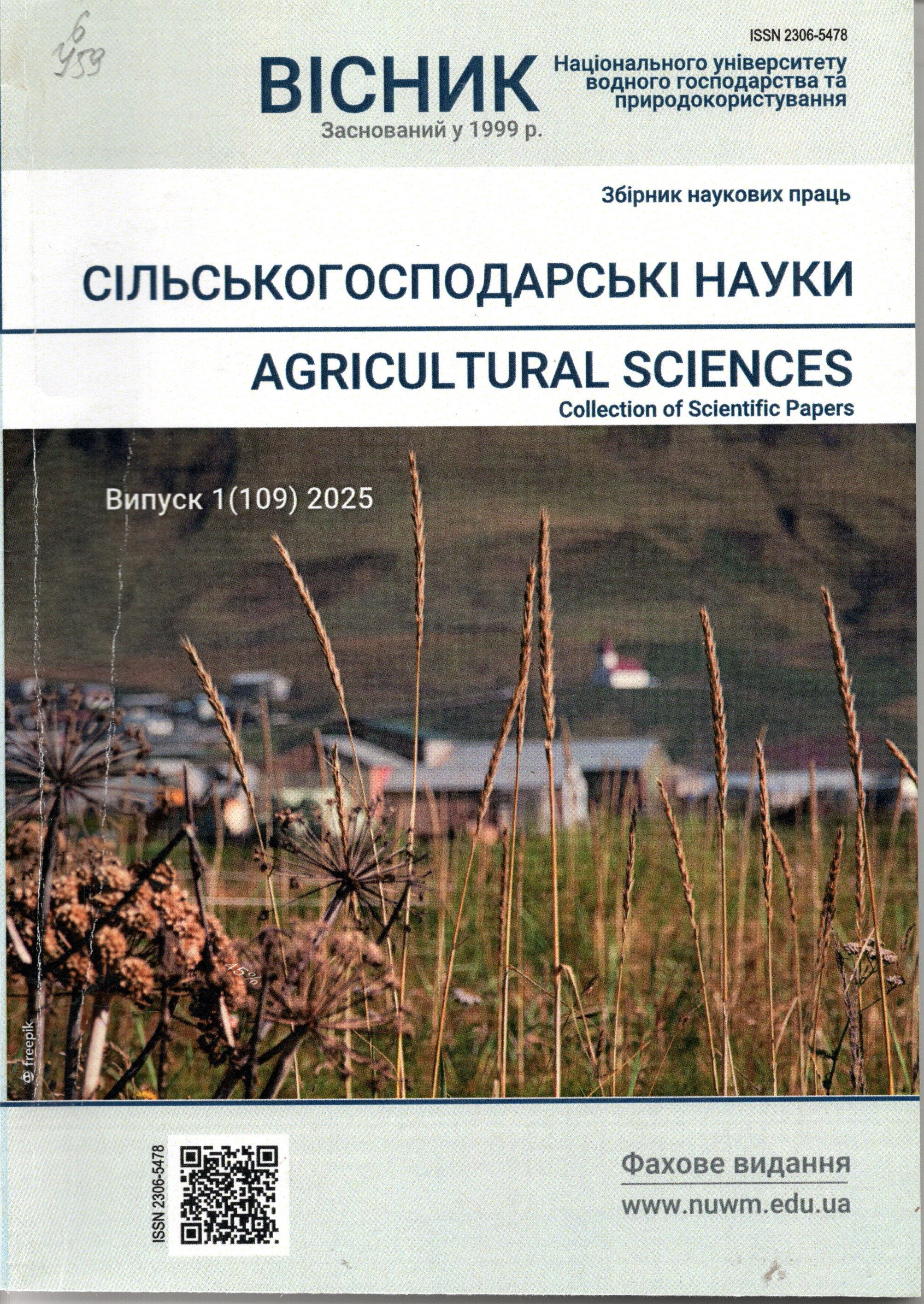ASSESSMENT OF AGROECOLOGICAL STATE OF ARABLE LANDS OF THE RIVER USTIA BASIN
DOI:
https://doi.org/10.31713/vs120255Keywords:
basic; aggregated integrated indicators, environmental sustainability, fertility rate, sanitary and hygienic condition, agroecological stateAbstract
The article presents research materials of the agroecological state of arable lands of the river Ustya basin. The indices of agroecological state of arable lands were calculated using the arithmetic mean of three aggregated indicators, namely, environmental sustainability, fertility rate, sanitary and hygienic condition. Quantitative and qualitative assessment of aggregated indicator of arable lands state was carried out by the scale of their suitability for the creation of special raw material zones on them: 1,0– 0,8 – as suitable; 0,8–0,4 – limited suitability; 0,4–0 – as unsuitable. By aggregated indicators environmental sustainability of arable lands in the basin is assessed as: in Ostroh district – limited suitable, two districts – as unsuitable. By aggregated indicator of fertility rate the arable lands in the basin are assessed as: three districts – limited suitable. By aggregated indicator of sanitary and hygienic condition the arable lands of the basin are assessed in Ostroh, Zdolbuniv, Rivne districts as limited suitable. By integral indicator of agroecological state the arable lands of the basin are assessed in three districts as limited suitable. Unsatisfactory agroecological state of arable lands is formed in the basin under conditions of producers’ failure to support positive humus balance in the use of five-field crop rotations not growing perennial herbs, maintaining low levels of potassium, zinc and manganese.Downloads
Published
2025-11-06
Issue
Section
Articles

